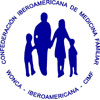The person-centered medicine in medical training
Resumo
Introduction: Advances in medical technology have distanced the physician - patient relationship, with negative repercussions. The Family Medicine looks for apply person-centered clinical method (PCCM), with the doctor and the person working together, sharing information, decisions and responsibilities and exploring the ideas and emotions about the illness, increasing satisfaction and adherence to treatment.
Objective: Report a case of a patient treated in Primary Care by a medical student, demonstrating the importance of MCCP in adherence to treatment, and as an integral approach tool in medical teaching.
Methodology or experience description: Mrs MDS, 69 years old, diabetic, obese and hypertensive for longtime query to submit laboratory tests and it was found renal failure with creatinine clearance formula by CKD- Epi 15 ml / min. We Informed to the patient the need to repeat the test because of probably need to start hemodialysis, but the patient was extremely resistant to the proposed treatment. In the return, with clearance 9ml/min we explain again the indication of HD, and the patient stated rather die than "staying with a hose in the neck."
Results: Through the PCCM, we explore the beliefs, experiences and expectations of the patient regarding the disease. She had already received hemodialysis indication by a nephrologist, but when she asked him if she would stay with "a hose in the neck" and receive positive response without explanation, she became extremely distressed and did not return to queries. We explained on kidney complications, the need for hemodialysis and the impact of treatment on their health. We present the nephrologist at the hospital where the postgraduating training works , and to the hemodialysis unit. The patient thrilled several times in contact with our team, and accepted treatment with confidence and autonomy.
Conclusions or Hypothesis: The PCCM is vital for doctors, patients and health care systems , being necessary to include it routinely in medical education . The recognition of our successful approach was expressed by the student who followed the case: "Thank you for today's example of how to be a doctor. Many teach us scientific knowledge, but few show us how to be a real doctor."
Palavras-chave
Texto completo:
PDF (English)Apontamentos
- Não há apontamentos.
Este periódico é de responsabilidade das associações:
Apoio institucional:







